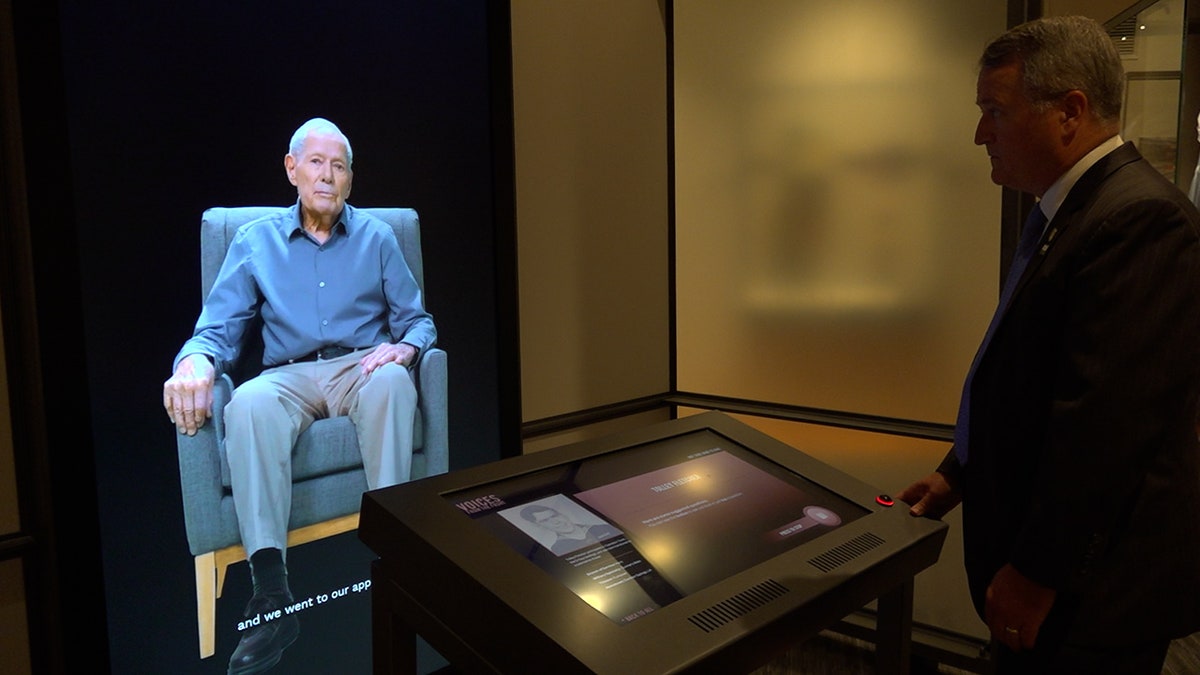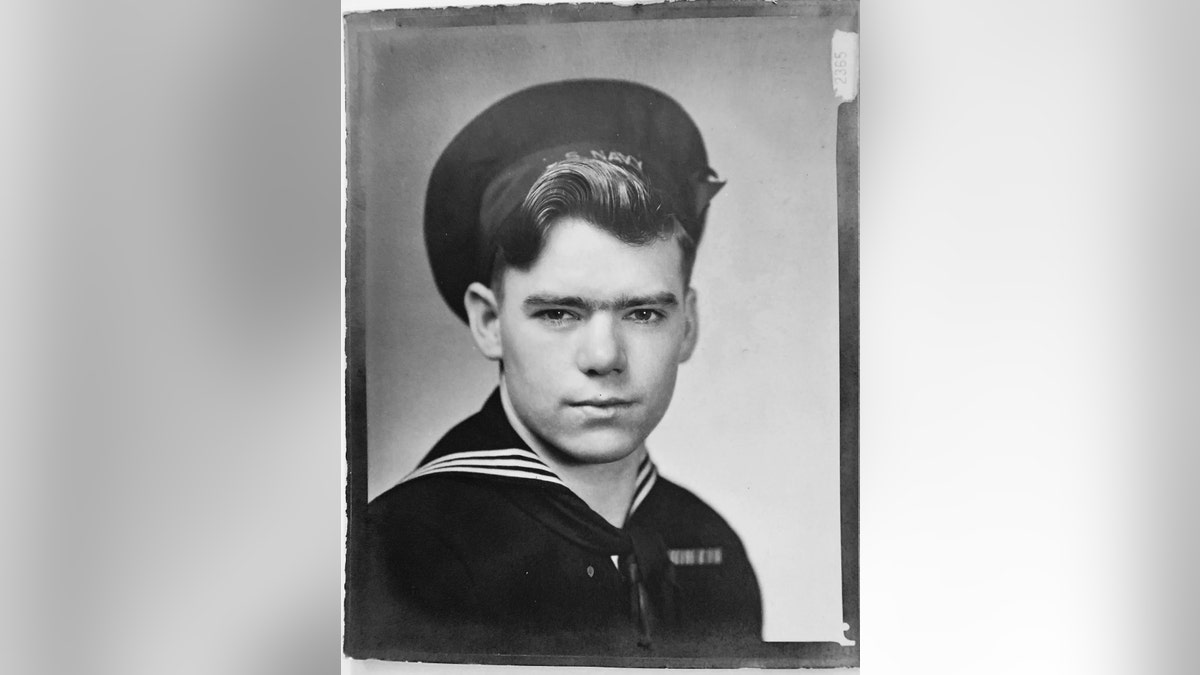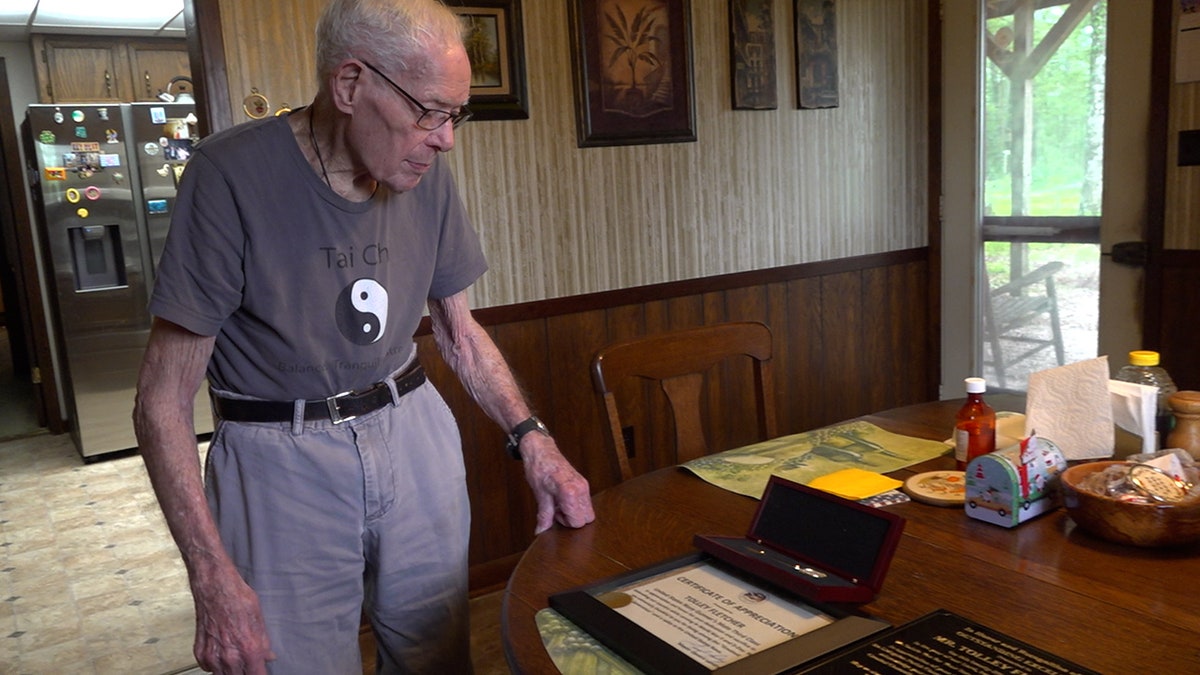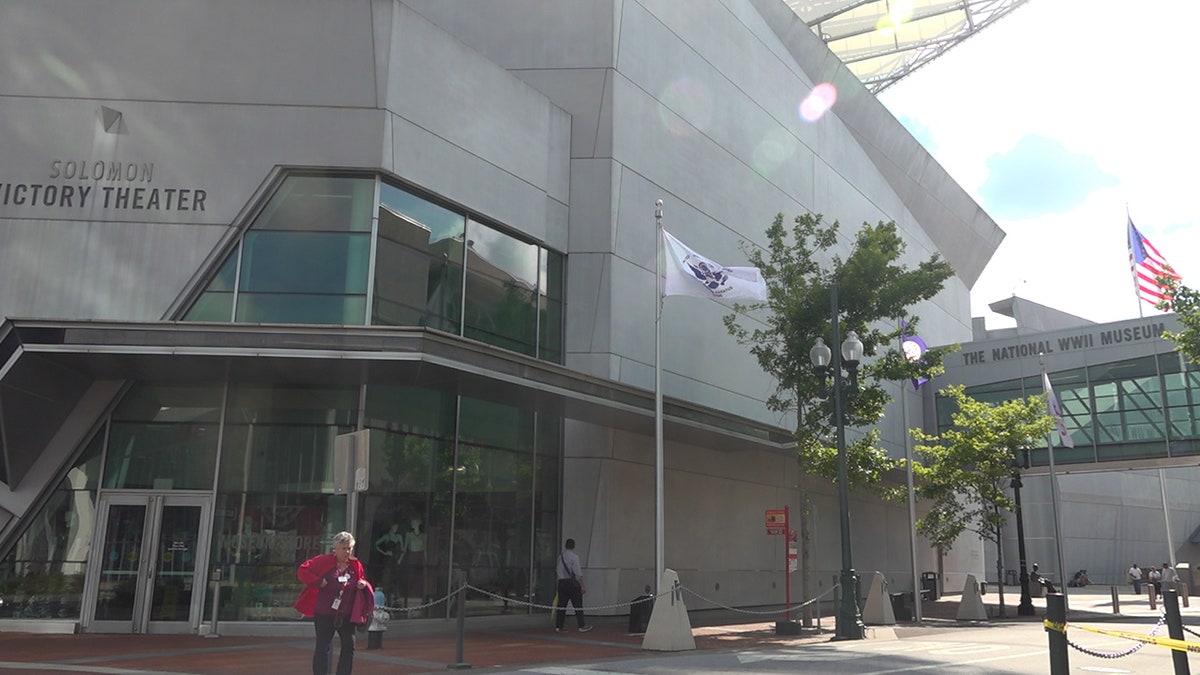D-Day veterans' story lives on through AI at the National World War II Museum
The National WWII Museum is helping veterans' stories live on through AI.
Thursday, June 6, 2024, marks 80 years since Allied armies stormed the beaches of Normandy, France during World War II on D-Day.
The number of veterans who served in the war is shrinking by the year.
But The National World War II Museum in New Orleans, Louisiana, is helping some of their stories live on through artificial intelligence.
JACK CARR RECALLS GENERAL EISENHOWER'S D-DAY MEMO ABOUT ‘GREAT AND NOBLE UNDERTAKING’
Eighteen World War II veterans are part of a new exhibit called "Voices From The Front" that opened to the public in March.
It allows people to ask questions and get real responses from the veterans — one of whom was there the day of the invasion.

Peter Crean, vice president of education and access (far right, standing) at The National World War II Museum in New Orleans, uses the museum's AI exhibit. At left, an American veteran of WWII. (Fox News)
Tolley Fletcher is a veteran of World War II. He enlisted in the U.S. Navy at 17 years old shortly after the bombing of Pearl Harbor.
At age 19, he was aboard a ship located outside the Normandy beaches.
He was stationed at Utah Beach, one of the five landing areas.

Tolley Fletcher is shown during his service to the nation in World War II. (The National WWII Museum)
"On the morning of the invasion, you could look up and as far as you could see in front and back of you and sideways, there wasn’t anything but airplanes," Fletcher told Fox News.
"I was at my gun station, and I don’t mind admitting I had the shakes to some extent. I think it would bother most to some extent. Basically, you know there is a possibility of getting killed."
D-DAY AT 80: ONE MORE MISSION TO NORMANDY FOR THE GREATEST GENERATION
Fletcher said the waters were rough that day, making it hard for soldiers to reach the shore.
Still, he said, "I’ve been asked a few times if we had any doubt if we would win the war. And I don’t know anyone that doubted it, not on our side anyway."

Tolley Fletcher looks at the honors given to him for his service in WWII. (Fox News)
People visiting The National World War II Museum can now hear Fletcher's story in his own words.
Peter Crean, vice president of education and access at the museum, said Fletcher and 17 other veterans were interviewed and had their responses recorded.
NATIONAL WWII MUSEUM'S NEW EXHIBIT USES AI TO LET VISITORS HAVE VIRTUAL CONVERSATIONS WITH VETERANS
"The [interviews] were shot volumetrically with nine cameras surrounding them, and we asked them, for about a two-day period, more than 1,000 questions," Crean said.
For more Lifestyle articles, visit www.foxnews.com/lifestyle
The system uses AI to match any question to a real response given from the veteran.

The National WWII Museum in New Orleans. "A hundred years from now, somebody's children or grandchildren will be able to come here and have a conversation with a World War II veteran." (Fox News )
"A hundred years from now, somebody's children or grandchildren will be able to come here and actually have a conversation with a World War II veteran," Crean said.
CLICK HERE TO SIGN UP FOR OUR LIFESTYLE NEWSLETTER
"That’s the primary source material that is going to the source, and it’s becoming, of course, ever so important as that generation is beginning to fade from history."
CLICK HERE TO GET THE FOX NEWS APP
Crean said the AI technology is constantly learning from peoples' questions — making each response more accurate to the question asked and faster after each use.










































